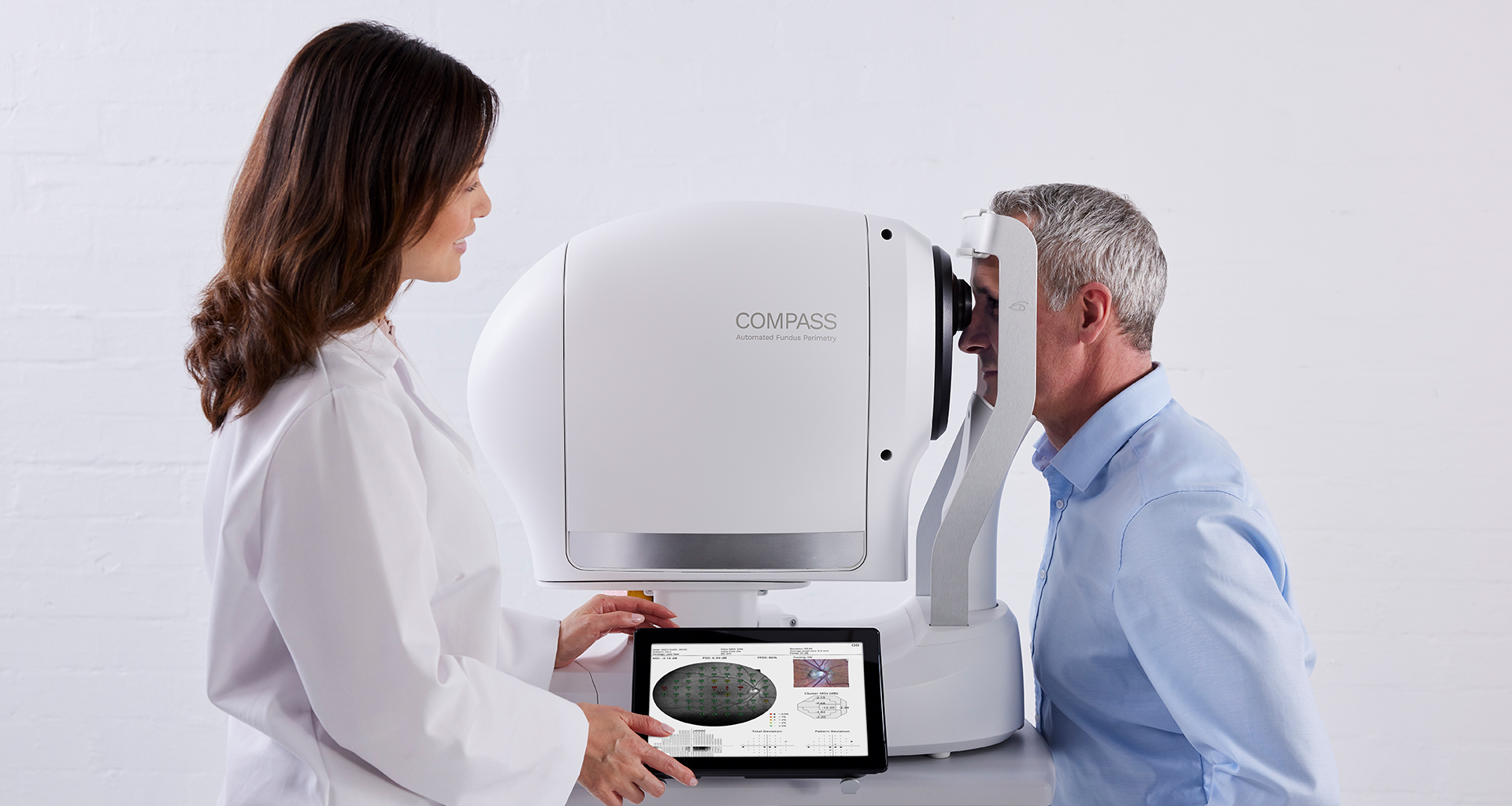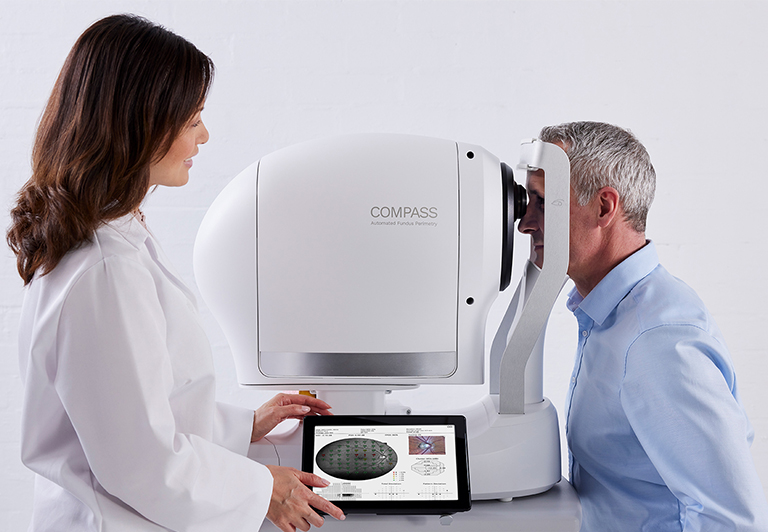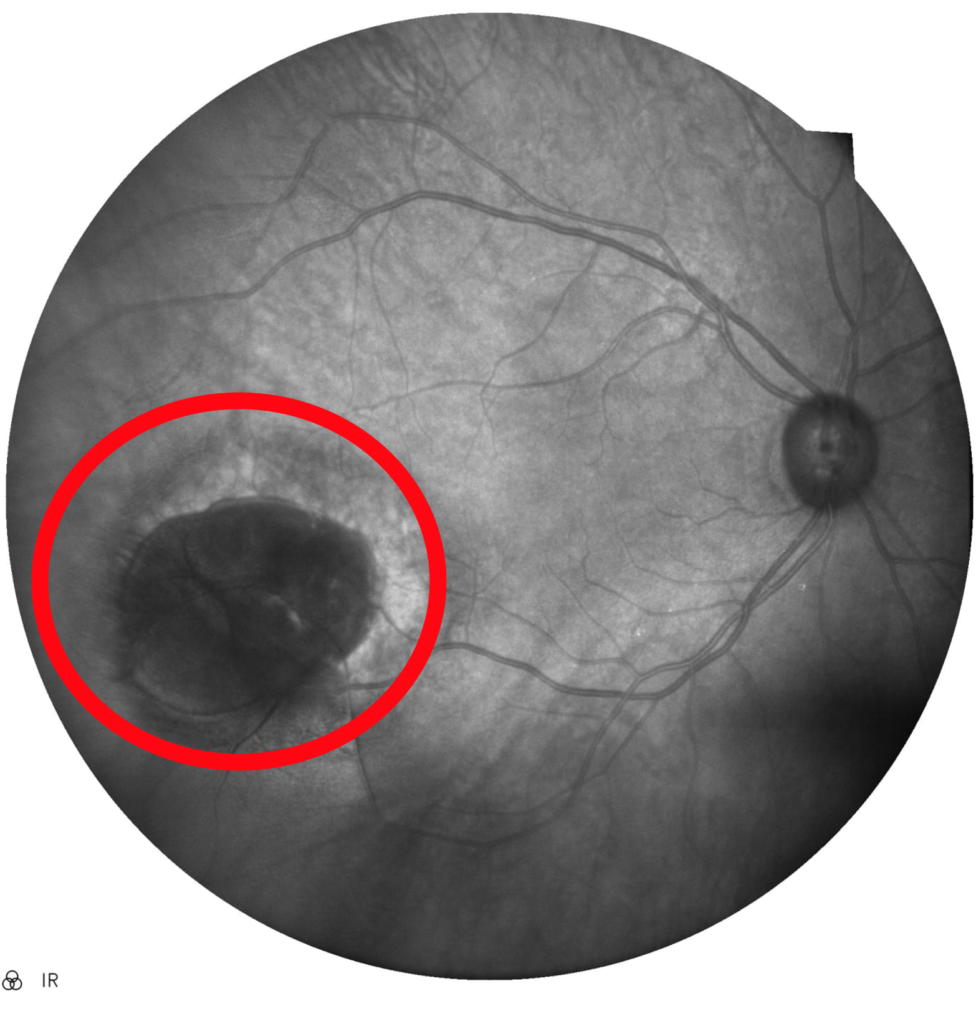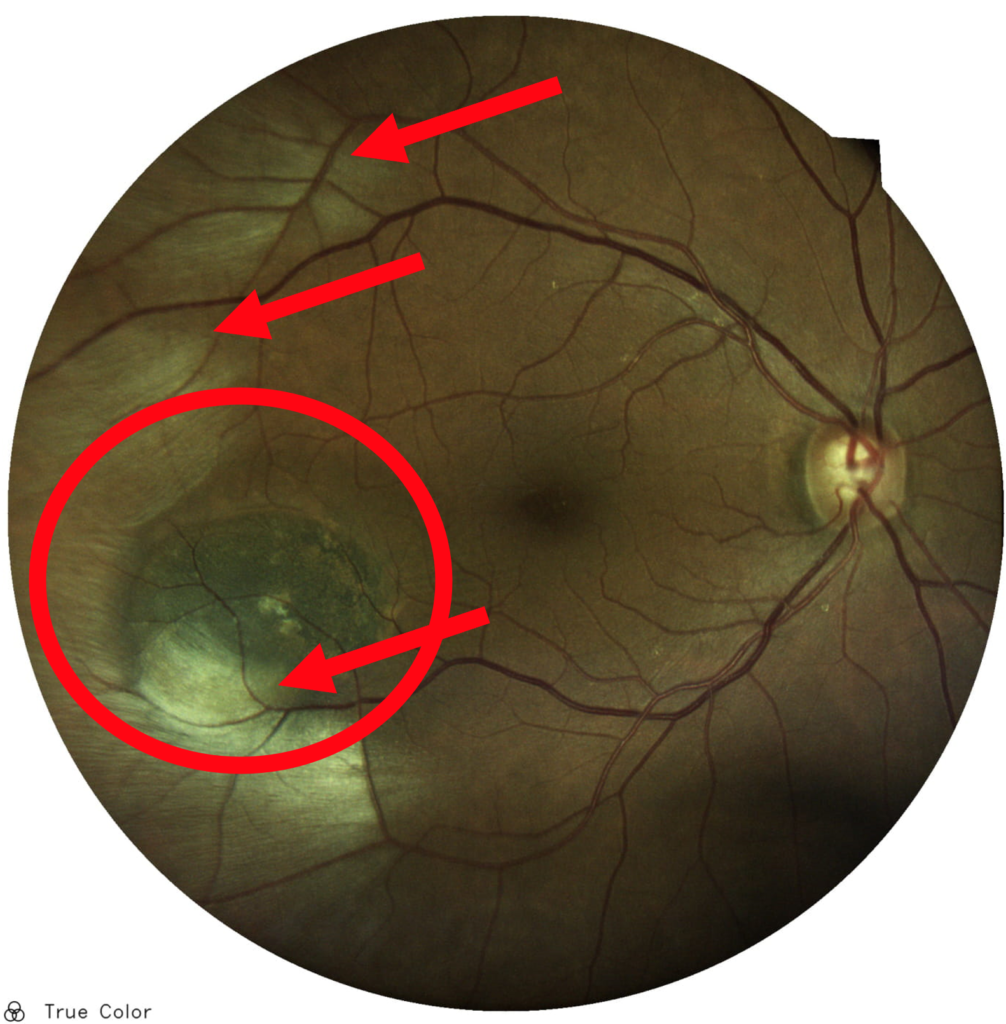

Clinical case with iCare COMPASS perimeter
The results of a visual field test suggested glaucoma but another test performed with iCare COMPASS reveled a different diagnosis. Below you can find more details of this real-life case.
Background of the case:
In January 2017 a 63 years old male was referred for suspected normal tension glaucoma in the right eye. The treatment was Ganfort ou.
The new results of the exam performed in March 2018
The new results of the exam performed with the iCare COMPASS perimeter in March 2018 show a Nevus with exudation Myelinization of the ganglion axons
Conclusions
- The anterior segment of both eyes is normal
- Retinal nevus in the right eye
- Excavated optic nerve head ou
- Stop glaucoma medication, patient stayed stable
OCT looks normal but the traditional visual field shows “nasal step”. One year later an iCare COMPASS test is performed:
- Nevus with exudation looking like a nasal step defect. The exudate leads to retinal detachment and a detachment causes loss of sensitivity;
- Myelinization of the ganglion axons: congenital anomaly on the temporal retina which causes a reduction of sensitivity because myelinization blocks light from passing through.
Thanks to the iCare COMPASS perimeter, the areas of depressed sensitivity, nevus and atrophic retina are clearly seen. After a COMPASS exam it was decided to stop treatment with IOP lowering medications. Patient was stable in the last follow-up.

Would you like to see more real-life cases?
Fill out the form below and we’ll send you a new interesting clinical case once a month.






